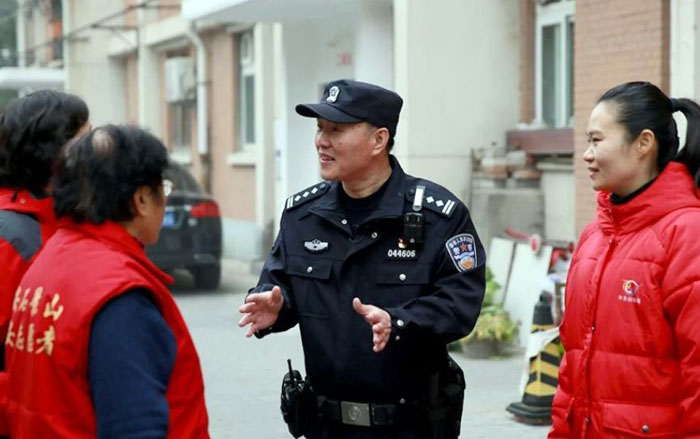
(TibetanReview.net, Feb19’19) – As the country’s economy falters amid trade row with the US and rising labour unrest, China’s ruling clique is busy strengthening control over citizens by integrating police work with grassroots party functioning. To start with, police officers in Beijing were being appointed to top positions in grass-roots Communist Party cells overseeing communities as part of sweeping efforts to further tighten control and scrutiny of residents, reported the scmp.com Feb 18. The report added that by July, every village and residential community in Beijing will have a community police officer doubling as its deputy party chief, with the programme being underway in Shanghai as well.
Citing Beijing Daily Feb 17, the report said that in the capital’s Tongzhou district alone, 239 police officers had been appointed deputy party chiefs of outlying villages and urban communities.
The new development was in addition to the capital already keeping close tabs on its residents through volunteer neighbourhood watch groups, including ones dubbed the “Chaoyang Masses” and “Xicheng Aunties” by internet users. The report cited these volunteers as an expansive network of senior citizen informers who monitor neighbours and tip the police off about any suspected crimes, from theft, fraud and drug use to terrorism.
The purpose of placing officers in local party cells was stated to be to enable the police to not only keep itself informed but also to be directly involved in community management.
As regards the reason why, the report cited Ji Zongren, a police officer appointed a party chief in Tongzhou, as saying that in the past, he had often encountered misunderstanding and resistance from residents during his work because some of their concerns did not fall within the scope of his law enforcement capacity.
“As deputy party secretary, [I] can help the public better understand and support public security work. It also makes it easier for police officers to go deeper into communities to solve their problems,” Ji was quoted as saying.
The policy is said to be hailed as a golden example of the “Fengqiao experience” – a Mao-era experiment in social management to “mobilise the masses” to monitor people on site and to rectify landlords, counter-revolutionaries and other “reactionary elements” seen as the people’s “enemies” without the need to hand them over to higher authorities.
The programme is seen as being in line with Xi’s repeated call to expand the party’s reach and entrench its position at the grass-roots level by building and strengthening local party cells.
The renewed effort to build and strengthen party cells will eventually cover the entire country, according to a scmp.com report Sep 30, 2018, updated on Oct 8, 2018.
This was based on a statement issued after a Sep 21 Politburo meeting chaired by President Xi Jinping, when the party’s most powerful 25 members met to discuss key policy direction. The focus was stated to be sharply on how to build and strengthen party organisations and expand into areas where previously the party has had only a token presence.
Party branches were stated to have been urged to improve their organising capacity and leadership to “cement the organisational foundation of the party’s long-serving reign”.
Experts were cited as saying the shoring up of local party cells was an attempt by the top leadership to carry forward policy programmes amid growing doubts within the party and society about China’s direction.





